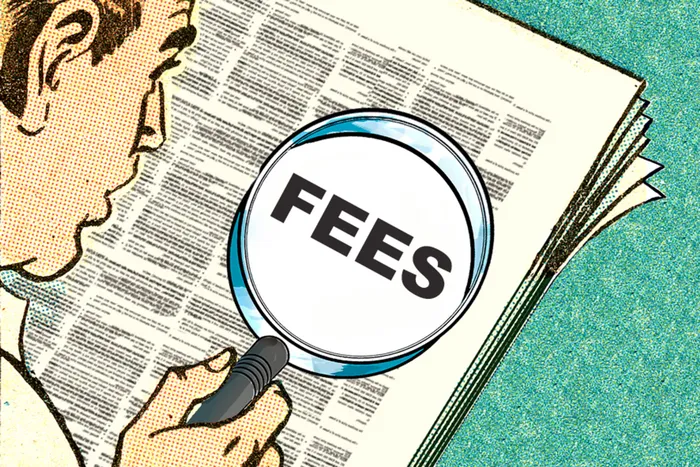Fees to consider when building a portfolio

PLANNING POINTS
Ryan McCaughey
Other than fund performance and overall diversification, which I highlighted in previous articles, it is important to understand how costs fit into your financial plan. In this month’s article I would like to highlight what fees to consider when structuring your investment portfolio.
The local and international investment environment is particularly complex. It subjects investors to a myriad of products and structures that invest in a broad range of asset types, which have very specific risk, return, term, taxation, and legal characteristics, as well as different kinds of fees – to add another layer to the complexity.
Different types of fees
Many investors, both retail and institutional, use the cost of an investment as a deciding factor and then from there decide whether they want to invest or not. I agree that fees should be considered; however, they shouldn’t be looked at in isolation. Similar to retail products, the more complex it is in nature (bells and whistles), the more you can expect to pay for that product. For example, in the world of collective investments, generally money market type products and exchange traded funds (ETFs) are priced at the lower end of the fees scale. However, as you start adding “risk” to the portfolio, the fees tend to increase – think actively managed equity portfolios, hedge funds and thematic ETFs.
Similar to buying a car, you first need to identify your price range and the type of vehicle you require. Thereafter, you consider things such as year, mileage, electric windows, power steering, additional finishes and only then do you compare prices across different brands. It’s the same with investing. You should 1) understand your risk tolerance; 2) identify your optimal investment term and return expectations; and 3) establish an investment portfolio that is optimally structured, taking diversification and costs into account, and avoiding unnecessary taxes while considering all regulatory and legal aspects.
Generally, within the local financial services industry, you will be faced with the following types of fees:
1. Platform, administration, or custodian fees. You may be liable to pay a fee if you are accessing a fund, product or solution from a service provider. Typically, the fees you’ll encounter are platform fees. A platform fee is a service charge levied to administer all your investments in one place – a linked investment service provider. The benefit of using a platform is that it provides you with one access point, providing you with access to a range of investments and products, as well as added benefits like tax reporting, performance, and transactions summaries. Platform fees are generally low and based on a sliding scale ongoing fee.
2. Investment manager fees. Other terminology used in the industry is asset manager fee, discretionary manager fee or service fee. Effectively, this is a fee charged by the investment manager for managing the fund or solution. The fee can either be a fixed fee or a performance based fee, or a combination of the two. Generally, this is an ongoing fee levied against the investment. The best way to compare investment manager fees is to look at the total expense ratio (TER) which is usually reflected on each funds fact sheet.
3. Financial planner fees. This is the fee paid to your financial planner for advice and management of your overall investment structure. The fee can either be an upfront fee, ongoing fee or a combination of the two. The key aspect is to form a mutually beneficial relationship with your financial planner, ultimately increasing your chances of getting good advice, a sound financial plan and be well on your way to achieving your financial goals
4. Product-specific fees. This is a fee built into a specific product, such as a structured product or guaranteed income/growth plan. The total product fee will be detailed on the investment quotation and usually reflected over the period in question.
Investment quotation
As part of your overall financial plan, your financial planner will provide you with an investment quotation. This will present a summary of your products, selected funds, asset allocation and the effective annual cost (EAC) of your investments. The EAC will allow you to compare the cost of products and investment funds from different financial services providers.
I'd encourage you to contact your Certified Financial Planner (CFP) professional to ensure that your financial plan is updated and aligned with your objectives. If you don't have an adviser and would like to set up an appointment, visit https://fpimymoney123.co.za for a list of CFP professionals near you.
Ryan McCaughey, CFP, is a director of Hewett Wealth and Financial Planner of the Year 2021/22